Implementation of Financial Attest Auditing Guidelines in state Audit Offices
Reference D.O. No:208 /23-PPG/2015 Dated: May,2016
We had circulated a process intensive structured questionnaire to understand and appreciate the nature and extent of adoption of the Financial Attest Auditing guidelines for audit of State Government Accounts, which were issued last year and were effectivefrom April 2015. The responses broadly indicated that barring a few offices, the institutional arrangements of constituting Financial Attest Audit Team (FINAT) and the due processes of risk assessment, sample selection and providing assurance in the envisaged form have been put in place, which suggest that the extent of adoption of the guidelines in the first year of implementation is satisfactory.
2) However, considering the significance of certification of accounts of State Governments we need to carry forward the initiative and strengthen the professional rigour in the conduct of financial attest audit. To instil the implementation rigour as envisaged in the guidelines it is imperative that the process of financial attest audit is conducted throughout the year and not be restricted as a year end exercise of reviewing the finance and appropriation accounts and role of FINAT in steering the financial attest audit process is strengthened. The responses to the structured questionnaire suggested that the Sub Auditors and Treasury Inspection were not receiving guidance on sampling and the mechanism of preparing the envisaged matrix and obtaining information thereon from Financial Audit Wing, Local Inspection parties and Treasury Inspection was not a regular feature. The proactive and synergising role of FINAT envisaged in the guidelines to anchor financial attest audit as a year-long activity needs to be put into practice, which would bring in the required process rigour.
3) Additionally, while some of the offices are using Qlikview, Oracle and MS Access, most of the offices seem to be primarily using IDEA as the analytical tool and are generally restricting its usage to sample selection. Since the potential of data analytical tools have been amply demonstrated we need to move towards using advanced analytical tools not only for sample selection but also for substantive analysis. Needless to mention the full potential of VLC has to be optimally leveraged. The Department has separately adopted the Big Data Management Policy envisaging a framework for advanced data analytics and preparing the Department for auditing in the digital environment, which is expected to further enhance analytical capabilities.
4) Since the next cycle of financial attest audit would currently be in its initial stages, you may like to consider the above issues for implementation, which would contribute to ensuring greater compliance with the Financial Attest Auditing Guidelinesand ultimately leading to improved assurance and quality of our financial audit reports.
Continue Reading |
-

From the Editor's Desk
This issue of the journal is the first issue with a thematic approach of “Capacity Building”. It will be our endeavour to continue this approach in future
...more
-

Capacity Building in IA&AD
Mission statement of IA&AD eloquently states “Mandated by the Constitution of India
...more
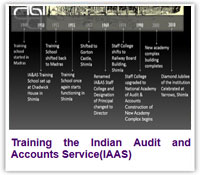
Training the Indian Audit and Accounts Service(IAAS)
The Officer Trainees (OTs) entering the Indian Audit and Accounts Service(IAAS)
...more
-
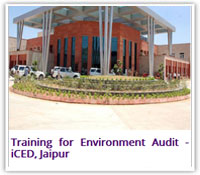
Training for Environment Audit - iCED, Jaipur
iCED also contributes to build capacity of other Supreme Audit
...more
|
-
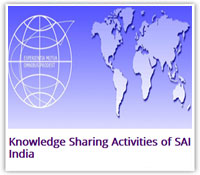
Knowledge Sharing Activities of SAI India
Comptroller and Auditor General of India(SAI India) is acknowledged as a leading
...more
-
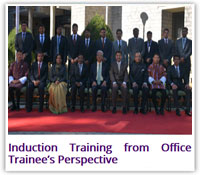
Induction Training from OTs’ Perspective
Journey from a civil services aspirant to a successful candidate and further to a
...more
-
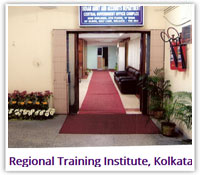
Regional Training Institute, Kolkata
In pursuit of excellence
Regional Training Institute, Kolkata was set up in April 1998 as Regional Training Centre.
...more
-

From International Desk
The CAG of India occupies several important positions in INTOSAI and ASOSAI.
...more
|
|
|
|
|